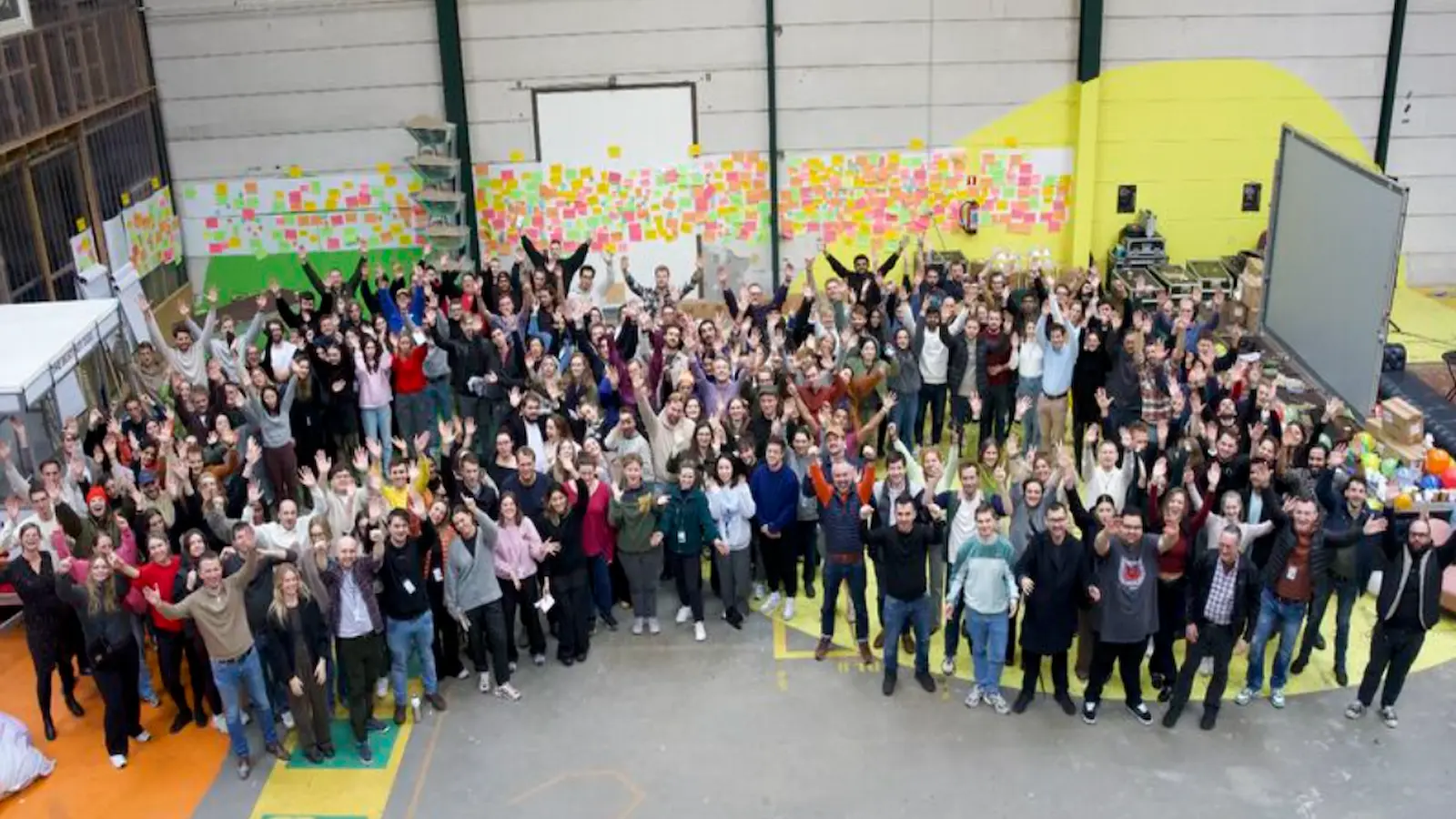Tide’s expanding workforce outgrew its manual performance systems. With Lattice, they rolled out scalable reviews and engagement tools that kept managers aligned and employees motivated through rapid growth.
I don't know what we would do without Lattice, honestly. How do you collect five different people's feedback, the manager’s feedback, the employees’ feedback for the manager, and put it all in one place? Before Lattice, we didn't do it because we couldn't do it.

As the company hit its fifth birthday in 2020, Tide found itself in the same situation as most organizations — thrown into lockdown and trying to figure out how to keep the business moving forward despite the significant challenges presented by the pandemic. Keeping employees happy and motivated was a critical task, but as Liza Haskell, Chief Administrative Officer, notes, at the time Tide didn’t have an effective performance review process in place, much less the tools it needed to understand its workforce. The company knew it needed to play catch-up to get its people management processes up to speed and would have to do so without the comfort that an office-based community provides.
Lattice had been installed by a predecessor, but it wasn’t really being used at the company. Otherwise, Haskell didn’t have much to run with, largely some documents she inherited from her predecessor which gave vague clues about employee satisfaction. “I think they just had a spreadsheet where they went through each line and talked to the employee’s manager about the score,” she says. “I don’t know how they kept track of everything, and I definitely know that most people did not have access to it.”
Haskell quickly saw that implementing a modern system for people management was essential to keep the company’s momentum headed in the right direction, and she knew Tide needed a platform that would allow it to manage everything in one place: performance reviews, engagement surveys, probationary reviews and objectives and key results (OKRs).
“We want the employee to have a clear view of the things they’ve done well, the next steps we can take together, and how they can move forward,” she says. “It's hard to do that when it's not clear what the next steps are.”
Evaluation
Haskell knew Tide needed to reach its employee engagement and development goals, so she took a deeper look at the company’s Lattice system that had largely gone unused to date. Tide wanted the ability to set goals for employees and perform OKR planning, the ability to generate and track performance reviews, to conduct probationary reviews and to send and manage engagement surveys. “If you look around, most of the systems on the market have one of those things or maybe two,” she says.
Consolidating as much of this work into a single tool was paramount for Haskell, she says, “because that means more people are actually going to use it.” Giving harried workers a single new tool to engage with is difficult enough; try to implement three new systems and they’ll probably revolt.
Haskell says that the more she worked with it, the more Tide fell in love with Lattice -- not just because it wrapped all those functions under one umbrella, but also because the UI is so easy to use. “When you log in,” she says, “it’s very easy to see what’s going on.” Integration with Slack was the icing on the cake, helping workers to engage with Lattice without having to launch the application at all.
Using Lattice at Tide
Tide implemented Lattice in April 2019 and ramped up over the course of the next 12 months, starting with its first employee engagement survey, a wide-ranging questionnaire about various topics involving learning & development, management, transparency, and more. “The survey clearly said we need to have a better performance review process,” says Haskell, which became an immediate focus for the company. Lattice Performance, a unified tool for employee evaluation and goal setting, is now being leveraged to improve the way Tide’s performance reviews are done. Since the implementation of the new performance review process, Tide has seen a 20% increase in the number of employees who agree with the statement “My performance is evaluated fairly”. Thinking ahead of their next review cycle, Tide is focusing on creating growth frameworks for every team in Lattice Grow so employees are able to come out of their reviews with clear paths to advance within their careers.
Today, Tide sends a pulse survey to workers every week in order to track how people, who are largely still working remotely, are doing. Participation rates are high, and that’s key for Haskell. “We keep an eye on the participation rate,” she says, “because people get exhausted answering a survey every single week. That's why we keep it spicy and add additional questions so people pay attention.”
In these surveys, learning development kept coming up as a key pain point, and Tide used that information to quickly roll out a new upskilling program. “With our new learning development system, people can access their learning development budgets and spend them much easier,” Haskell says.
In the next month, Tide is planning on launching an automated probationary review process through Lattice, whereby new joiners will be able to complete a self-review, and receive feedback from peers and their manager.
The Impact of Lattice
“The people team has a huge impact on the lives of employees in a very tangible way,” says Haskell, and she is excited that with Lattice that impact is more positive than ever. For Haskell, it’s all about having vital information about how workers are doing. “We can see on a weekly basis how happy our employees are and which teams are unhappy. We can then work with the team managers or team leaders on improving the life of anyone that’s having trouble.” With Lattice, these kinds of insights, previously completely hidden to Tide’s management, are no more than a mouse-click away. “With Lattice, we can understand what our employees need and then create an action plan to fill gaps,” she says.
More importantly, Haskell says that Lattice is helping to improve morale because employees see that their voices matter. “When people see over and over again that their feedback leads to action, they are much more likely to provide their feedback the next time.” It’s a virtuous cycle where Tide receives honest commentary and can then use that to improve the working life of its staff.
And even the C-suite is seeing the value of Lattice. “When the CEO of the company can see an anonymous comment talking about a specific issue, he pays attention,” says Haskell. “I think Lattice has really allowed us to have a much closer tie-in with what's going on in the company, especially as people continue to work remotely. Not many people have returned to the office yet. I’m in my living room right now.”
Takeaways
- Lattice lets Tide consolidate people functions into a single tool, including OKR planning, performance reviews, probationary reviews and engagement surveys.
- Tide earns high levels of participation in engagement surveys by keeping questionnaires short and interesting – and by acting on employee feedback.
- Lattice gives Tide one-click access into employee sentiments, letting them act quickly to resolve issues.




%20(1).jpg)

